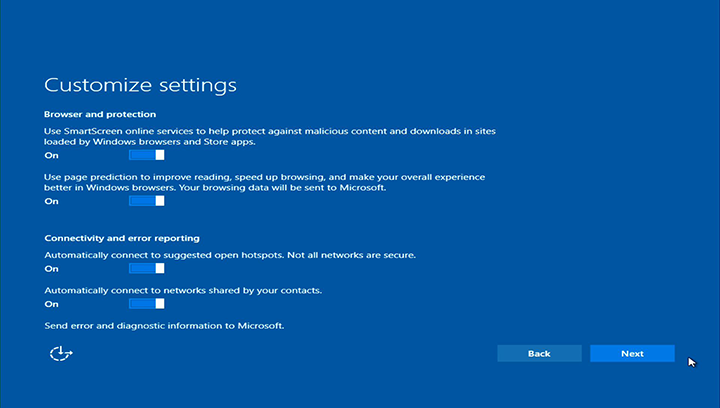Even though Microsoft offered Windows 7 and Windows 8/8.1 users a free upgrade path to Windows 10 for the first year, not everyone took advantage of the offer. Many of those who avoided upgrading at no cost cited privacy concerns, the most vocal of which accused (and continue to accuse) Microsoft of outright spying. While it might not change things for staunch advocates of sticking with older versions of Windows, Microsoft is taking steps to improve user privacy in Windows 10.
A large part of Microsoft's motivation is that it faced a potentially costly legal tussle with Switzerland. The Swiss Federal Data Protection and Information Commissioner (FDPIC) opened an investigation into Windows last year and determined that Windows 10's "get going fast" install option shared too much data about users without giving them enough warning.
"The FDPIC investigations revealed that data processing in connection with Windows 10 did not conform in every respect with the data protection legislation," the agency noted.
Well, following Microsoft's announced changes to privacy in Windows 10, which we'll cover in just a moment, the FDPIC has backed off.
"The technical implementation of the modifications requested by the FDPIC will be carried out worldwide as part of the two Windows software releases planned for 2017," the FDPIC said, adding there was "no need for court proceedings."
Microsoft is also reducing its Diagnostic data collection from three levels down to two: Basic and Full. For anyone who previously chose the soon-to-be defunct Enhanced level, they'll have the option of choosing Basic or Full when the Creator's Update is applied.
Data collected at the Basic level will not be as robust as before following the Creators Update. Microsoft did not specify to what degree data collection will be reduced, but did say it will include "data that is vital to the operation of Windows," including basic error reporting.

"We want you to be informed about and in control of your data, which is why we’re working hard on these settings and controls. And regardless of your data collection choices, we will not use the contents of your email, chat, files, or pictures to target ads to you," Microsoft states.
The Creators Update will roll out to users in spring. In the meantime, Microsoft launched a new web-based privacy dashboard that users can access right now. The dashboard shows activity data collected by Microsoft, such as search and browsing histories, location activity, and more. That information can be found and managed here. Over time, Microsoft says it will add more tools that give users visibility and control over their collected data.

0 commentaires:
Enregistrer un commentaire